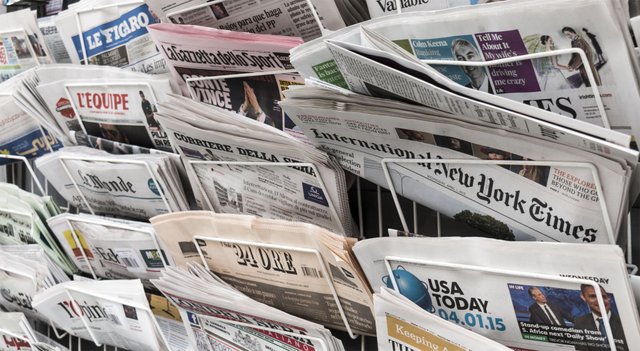
What we don't have to acknowledge to our opponents is that those exceptions open a door to government interventions when it comes to misinformation or disinformation.
Really, I don't think that these people understand how high the bar for defamation and lible is in this country. There's a reason why David Irving filed his lible lawsuit against Deborah Lipstadt in England, and it wasn't just because Irving didn't want to get on a plane. It's because, in England, the burden of proof is flipped in defamation cases so the burden is on the defendant. They also just have a much lower bar for what qualifies.
It's really hard to win a defamation suit in this country. You pretty much have to pull an Amber Heard. Even still, the point has to be made that defamation and lible are completely different issues than disinformation and misinformation. Defamation involves saying something that's false about a specific person that causes measurable damages. Really, in most cases, you are allowed to lie about people in this country. Hell, I'm not even a public figure, and I've had people lie about me on social media. Some people bought the lies. I may have lost a fair share of professional contacts because of it. There's no way that I would win a lible suit.
To that point, it's also worth pointing out the absurdity of going with the name Disinformation Governance Board. Disinformation is specifically about people lying. Defamation and lible aren't handled by the government running investigations. People actually need to file lawsuits to get the courts involved. If you do the slightest research on these cases in which a willful lie is a part of the complaint, you have an idea of how hard it is to prove that a person is lying, and not just wrong. That was Irving's beef with Lipstadt, and took a substantial legal team going through thousands of pages of Irving's diaries and private correspondence to prove that it was plausible that Irving was lying.
The idea that a government board is going to determine that somebody is lying on social media, rather than just getting stuff wrong, is absolutely delusional.
That's definitely part of the reason why so many people have shifted the language to "misinformation" more often. But, this doesn't make the arguments any better. It's easier to determine that somebody said something wrong than it is to prove that the person is lying. But, talking about the government getting involved in cases where a person said something wrong is getting even further away from the narrow exceptions regarding the First Amendment.
To an extent, I can understand why poorly educated people might believe that lying isn't protected speech. It baffles me that anybody with a functioning brain would think that saying something wrong isn't protected speech.
Still, the worst thing about this isn't just that people don't know that they're wrong about the First Amendment -- aggressively wrong -- not even in the ballpark of being right. It's that it's clear that these people want the government to have the power to be the arbiters of truth, and to decide what we're allowed to say or read or hear.
It is the First Amendment that has kept the other branches of government from stepping over that line. I would have hoped the UK threatening a dude with prison time for posting a video of his girlfriend's pug doing a Nazi salute as a joke, and the fact that they're arresting women who are my mom's age for social media posts, the fact that they're not alone in the western world, should cautionary tales for anybody and everybody in western civilization -- it seems like some people, even at the highest levels of government, are taking inspiration from these injustices.